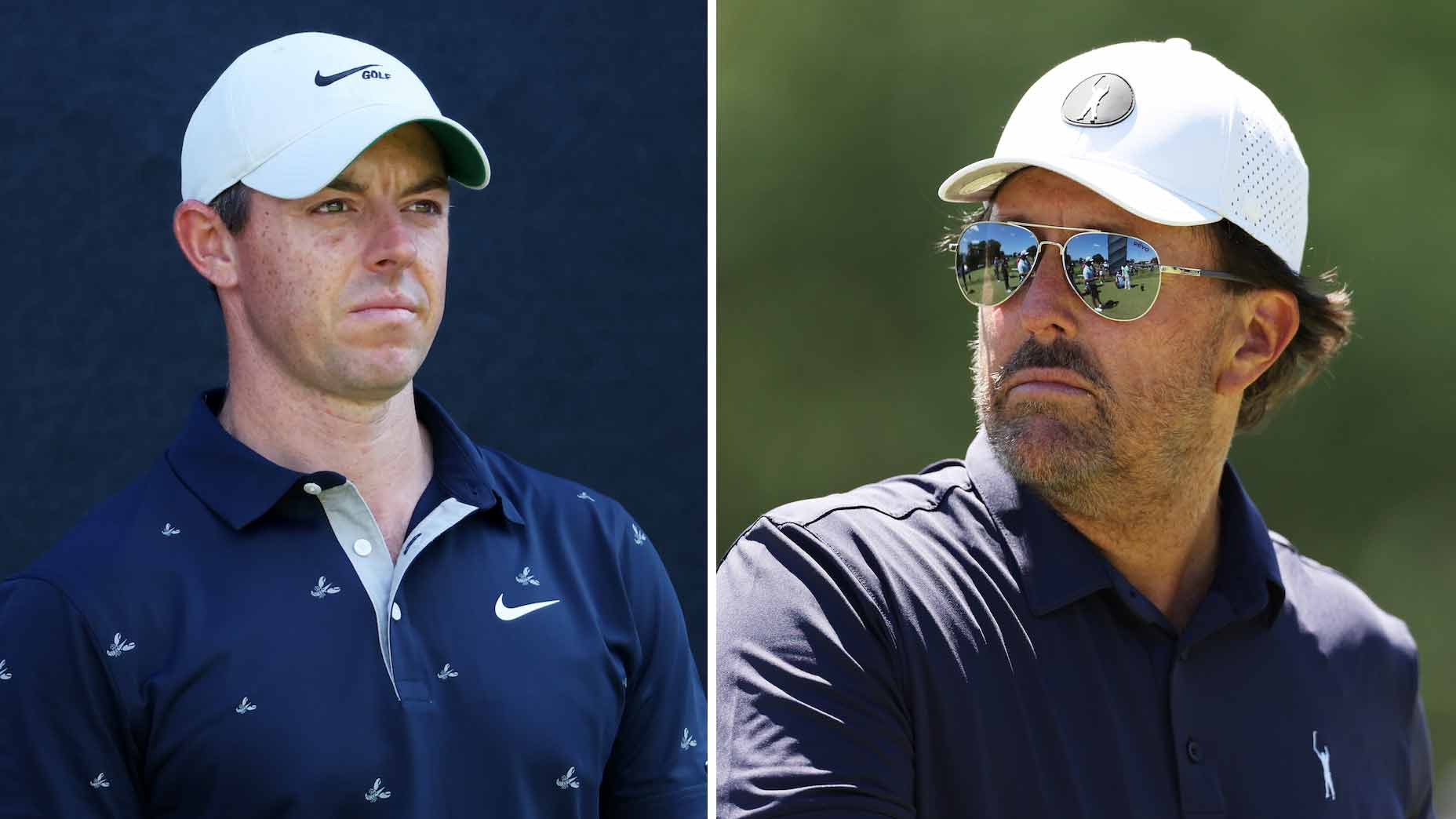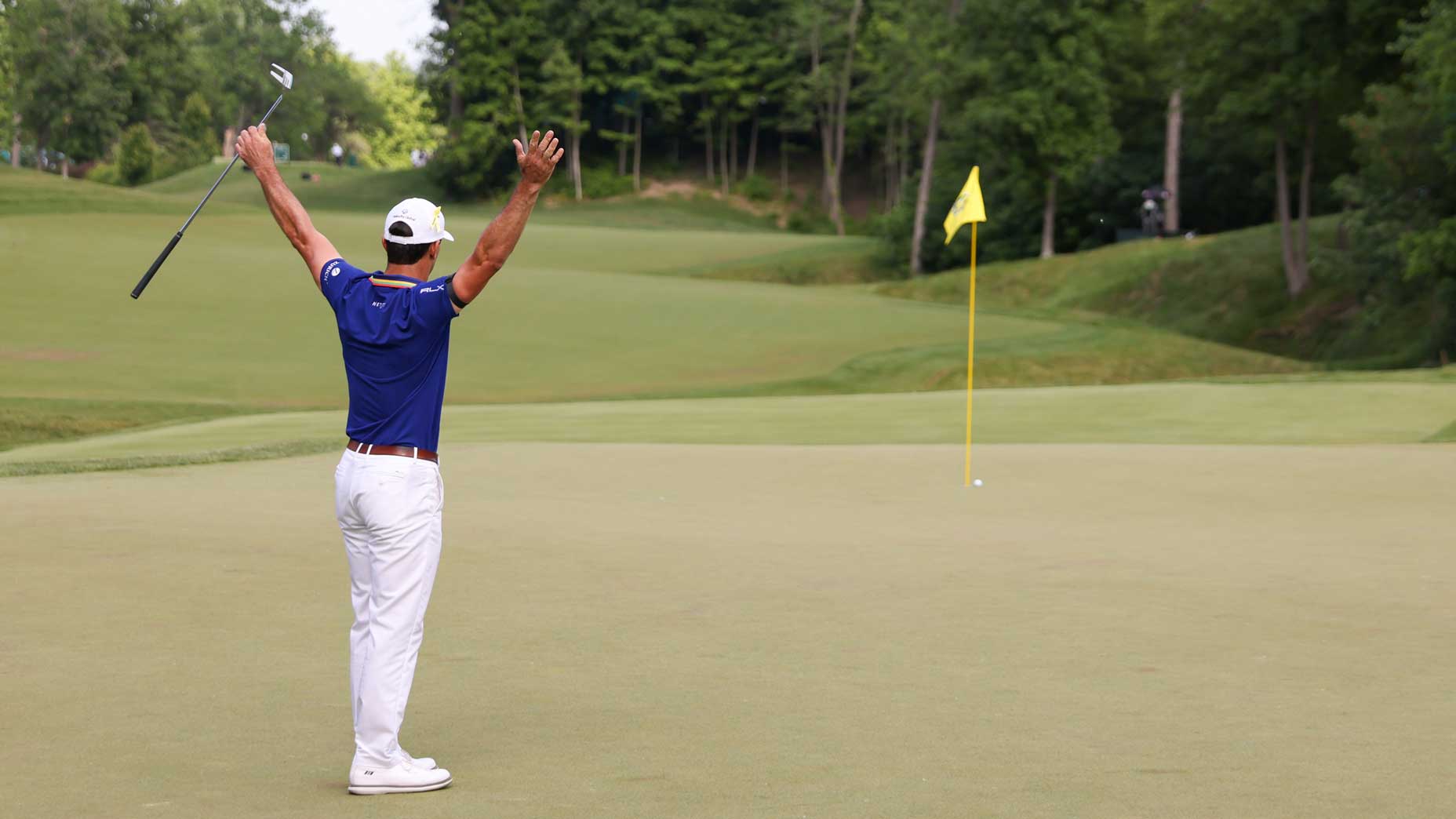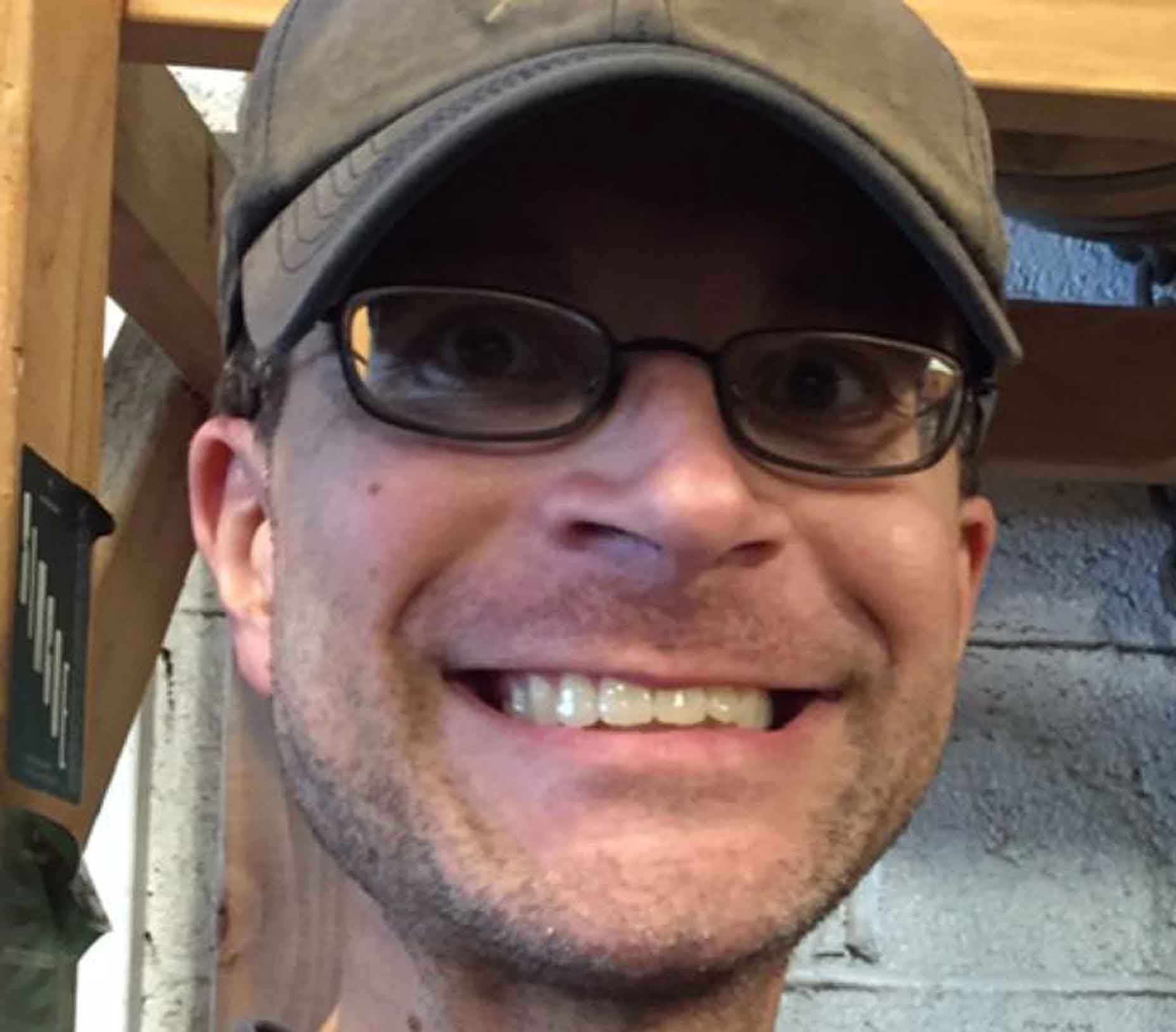[ad_1]
BROOKLINE, Mass. — Ben Silverman’s story comes with a lengthy warning, which we must issue before we write any words. It’s from his coach, who cautions should you be daredevilish enough to try something similar.
“How do they handle adversity?” Jeff Leishman asks. “Are they fully grasping the journey that they want to go on? So without crushing dreams, I would attempt to enlighten them and I would say the analogy that I use most often is like mountain climbing.
“It doesn’t get easier the higher you go — it gets harder, the air gets thinner, it’s more likely that you die, all of it is more extreme. It’s like mountain climbing, and there’s a reason why people stop on the journey up the hill. So is someone ready for that?
“And I would say that it’s also helpful that they come from some other endeavor, preferably sport, that they got the framework of allocating practice time and the self talk and all the other things that would come with that. It would be pretty challenging if that’s where they were at and they didn’t have the basis of — I’m not even talking of physical skill; it’s more about being clear of the likelihood of this. It’s more likely that you decide you want to play in the NHL or Major League Baseball than it is playing golf. There’s more jobs there.
“Why are you choosing this, that has less jobs?”
Got it? Good. Because the story, while just maybe the best you’ll hear all this week at the U.S. Open, ain’t for everybody. It’s fantastically improbable. Though, of course, that’s what makes it so very good. After all, after shooting 118 in a tournament when he was 16, after finishing high school as a mid-80s player, after working at a golf range for a year, after bouncing all over the planet for some 10-plus years, 34-year-old Canadian Ben Silverman has a 8:57 a.m. tee time at The Country Club in Brookline on Thursday, and he’s playing golf in his first-ever major championship.
So it’ll be tempting to give it a go yourself.
But, you know, rock climbing and death and all.
* * *

Ben Silverman hits a shot on Tuesday at the Country Club during a practice round for the U.S. Open. His coach, Jeff Leishman, looks on.
Nick Piastowski
“This guy can bang it. He’s got him by 40 yards. I don’t know how they do it.”
It’s practice round Tuesday at The Country Club, and though he’s not the longest player, Silverman’s got Laird Shepherd, last year’s British Amateur champ, by half a football field off the 13th tee. A fan along the ropes is impressed.
So is Silverman. The 16-year-old Silverman, that is. That Silverman was all over the yard. You may have heard something by now of the pro who once shot nearly 50 over par — the Toronto Star wrote a wonderful piece here, and the tireless Ryan French of the Fire Pit Collective tweeted about it here — but Silverman doesn’t mind retelling the day in question. It’s a badge of honor really.
Canadian Junior Golf Association tourney.
Silverman’s first-ever event.
One-hundred and eighteen strokes.
“And I didn’t even know all the rules, I never kept score properly. My mom just dropped me off and was like, have fun, I’ll see you in like five hours, like we didn’t know what was going on really. So it was a big learning curve for a few years.”
He’d get better. Or better-ish. When he was done with high school, by the time he was nearly 20, he was a 12-handicap; even the USGA’s website noted it here. So now you know the start of the journey and obviously the end. And we’ll do our best to fill in the middle. But really the questions here are this:
How?
And, uh, why?
Let’s start with the latter. All of the other options under the sporting rainbow, and you wanna stick with the one where you’re only good enough to happily enjoy the game on the weekends? Brookline? Here’s the Country Club’s website; maybe they’ll let you on if you email. No one at all would scoff if you ended the story right here.
But if you’re a golf junkie, you … get it.
“I loved all the other sports, but nothing grabbed my attention like golf,” Silverman said. “It was unlike any of the sports. I could pick things up pretty quickly because I’ve always been athletic and I couldn’t pick this quickly so it was more frustrated but accepting that I could get better, accepting the challenge. Like I’m better at every other sport, there’s no way I’m not going to be good at golf.
“And then when I started learning about all of the different aspects of the game — you know, every sport, there’s just a couple little things that you got get good at; golf, there’s so many things to get good at, and it’s never ending and that challenge is what I thrive off of.
“There’s always something to learn, there’s always something to get better at. At some point with all the other sports, there’s only so many aspects of the game to practice or work on. Golf, it’s like never ending. So that is what pretty much hooked me and I’m trying to get the best I can be at all those different aspects of the game. It’s more exciting to me than all of the other sports.”
* * *

Ben Silverman signs an autograph on Tuesday.
Nick Piastowski
“That’s the kind of action you need.”
Back to the practice round. Silverman isn’t the biggest dude in the world — he’s 5-foot-10 and a buck sixty-five, according to the PGA Tour’s website — but he gets the most out of an athletic move to the ball. On the par-3 11th, he flips a short iron 6 feet left of the flag, and another fan along the ropes was wondering why he can’t do that.
Which brings us to the how.
There’s some good fortune here. Obviously, Silverman figured things out quite nicely, whereas the majority never do. But there’s a saying in sports where you make your own luck, and this is that. In Silverman’s case, he didn’t go to college for a year, took a 40-hour-a-week job at a driving range and hit golf balls for another 40. He eventually landed at Florida Atlantic and hit golf balls. And he was on his way.
But you may have some follow-up questions. It’s here where you may say, well, I asked my mom and dad if I, after high school, for one year, could also not go to college, take a 40-hour-a-week job at a driving range and hit golf balls for another 40, and they still bring that one up over the holidays. And Ben’s?
“Nobody in my family golfs, so we weren’t members anywhere,” Silverman said. “I was the only golfer. … But it was probably great that they weren’t from the golfing world because we didn’t really know what we were up against. We were just of the mindset, they knew how good of an athlete I was, how determined I was that I wanted to do it, and they said we’re going to support you 100 percent.
“They were both musicians when they were younger and moved away from home and chased their dream of being professional musicians so they knew what that was like. And they just said, 100 percent, we’ll support you.”
As for the technical side, Silverman said there was never one epiphany; there were many, and what may have worked for him may not for you. That’s understandable. But Leishman had a thought for the 12-handicappers.
“An effective way to close the clubface like I would say is at the top of the list,” he said. “I would consider that to be more of a modern fundamental as opposed to a grip or a stance. When people are at a high level of golf, they’ve figured out an effective way to close the clubface. So then that just takes away the whole slicing thing. And then what goes with that is they have some awareness that they have some clubface control so the ball starts where you want it to. So without that, it makes it pretty hard to make big leaps.
“And as a 12-handicap, you could probably get away with a pretty good short game because a 12-handicap, we’re talking about someone who shoots consistently in the low 80s. There’s a lot of ways of doing that. There’s still a relatively low percentage of the golfing population in North America that can do that. So they’re still good, but I’m just thinking about that as you’ll meet someone who’s a slap slicer who’s a 12-handicap, or you’re meeting someone who has a ridiculously good short game and they’re doing all these ways, for them to take a jump — well, and to have speed, so they got to have control of the clubface effectively and have potential for speed.”
* * *

Ben Silverman hits an approach on Tuesday.
Nick Piastowski
“Oh, that’s Tommy Fleetwood.”
Hmm, no. Silverman is walking down the 17th fairway on Tuesday, and a fan along the ropes thinks he’s watching the English Ryder Cupper. Silverman isn’t exactly someone they put on the posters here. He’s had a solid career — two full years on the PGA Tour; a Korn Ferry Tour victory — but he’s a grinder and a journeyman and this is still major championship No. 1. When he pulled into The Country Club on Monday, the first reaction was: “Holy s—, they set up a lot for this place.”
But he’s also four rounds away from winning. And from just outside the players lounge here, where Justin Thomas was seen eating a snack, and Erik van Rooyen was playing corn hole, and the parking lot with courtesy black Lexuses was a chip shot away, we talk about what that’s like for the kid who shot a 118.
“Could you imagine being here today after all been through?”
“It was part of the goal. But there’s no way I could imagine what it would feel like to be here as a 12-handicap. I basically sucked at golf when I’m comparing myself to the guys that are here now, at that age. They were all Walker Cup All-Stars, AGJA champions and I was still struggling to break 80. But earning it all the way to now, now I feel like I belong when I’m here. I don’t feel like that 12-handicapper like in awe of everything.”
“Pulling yourself back, looking at where things are from 10,000 feet, what are you seeing?”
“It’s awesome. It’s like a satisfying feeling of what your favorite dessert is or your favorite food is and you get back in at the end of the day and you sit on the couch and you take a bite and you’re like, oh, it’s soooo good. That’s what it feels like.
“I can just look around and nod my head and be like, yup, this is good.”
What’s a good week for you?
“Winning.”
* * *
On the tee box on the par-3 16th, as Silverman and Shepherd, their coaches and their caddies wait for the green to clear, Leishman wants a photo.
He puts his arm around his student.
He puts bunny ears behind his head.
Silverman isn’t nervous over the moment. But he’s a little anxious to leave. His family is waiting, and I’ve taken up too much time of a pro two days away from the U.S. Open.
I ask one more question.
“What would you tell someone who’s also 18 and a 12-handicap?’
It’s not a warning.
It’s words to live by.
“You can’t have a Plan B and it has to be everything you want. There was nothing else I wanted to do other than become a professional golfer. So it just consumed my thoughts 24/7. No matter what I was up against, no matter now people who were like, are you sure this is what you want to do; you know how difficult it is? None of those comments fazed me because I was so set in, this is what I’m going to do no matter what and there is no Plan B.”

[ad_2]
Source link










More Stories
Adventure in Darjeeling
How To Choose The Best Backpack For Camping And Hiking
Gorilla Tracking Safari in Uganda and Rwanda